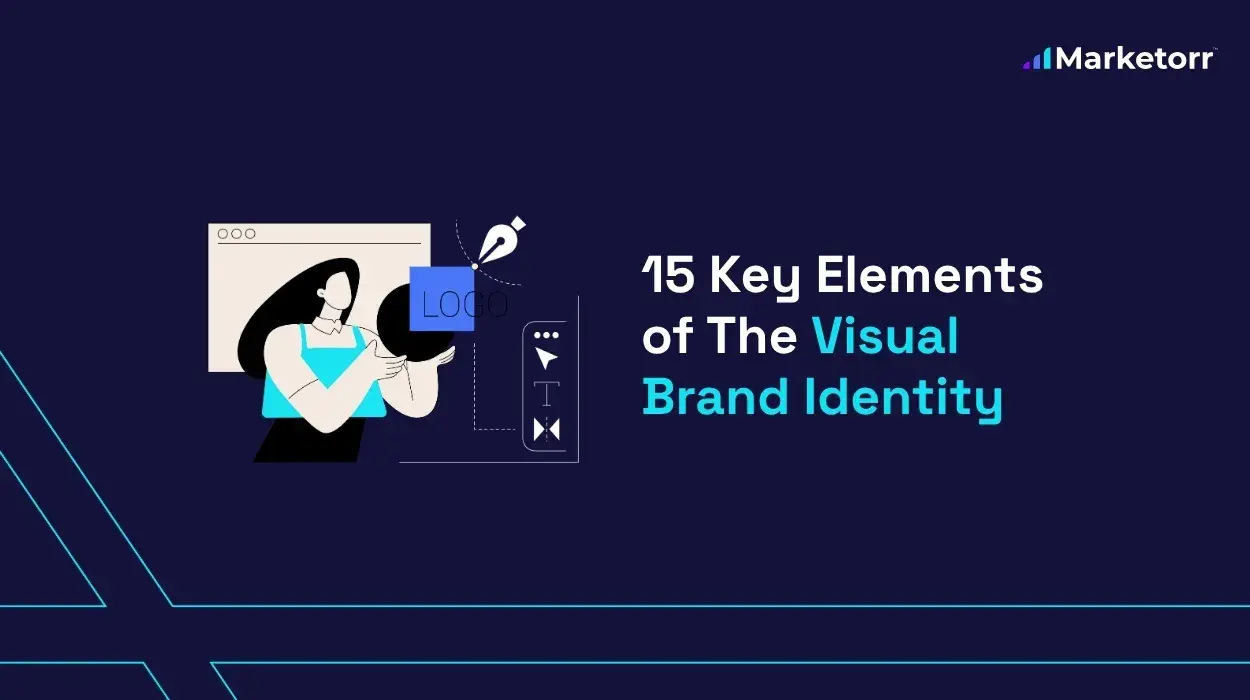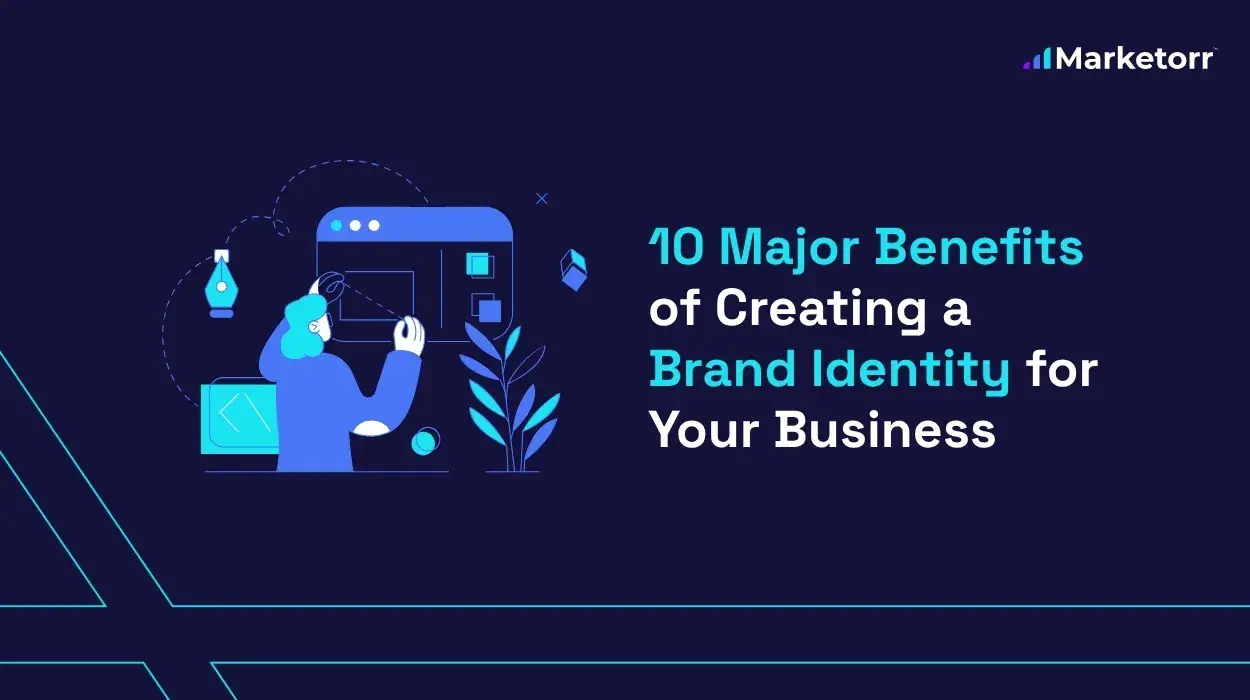Local SEO helps businesses promote their products or services to nearby customers at the exact moment they’re looking for them. It focuses on improving visibility for searches with local intent, like “best pizza near me” or “plumber in Chicago.”
This article provides a complete breakdown of what local SEO is, how it works, and why it’s an essential part of digital marketing. We’ll explore how local SEO differs from broader, national strategies and the exact signals Google uses to determine local rankings. You’ll also learn how local SEO drives more targeted traffic, helps build trust and authority, and delivers real business results like increased calls, foot traffic, and revenue.
What Is Local SEO Service?
Local SEO service is a digital marketing strategy that focuses on improving a business’s visibility in location-based search results on Google and other search engines.
When someone searches for services or products near their current location, search engines use local SEO factors to decide which businesses show up first. This is different from general SEO, which optimizes for national or global visibility. Local SEO is most valuable for small and medium-sized businesses with a physical location or a defined service area.
Optimizing for local SEO helps ensure that your business appears in local map results, “near me” searches, and location-specific queries. Search engines prioritize showing relevant results closest to the user. This means if your local SEO is strong, your business is more likely to show up in front of potential customers when they need you most.
How Local SEO Differs from National SEO
National SEO targets a wide audience, focusing on building visibility across an entire country or even internationally. Local SEO, however, homes in on a specific geographic area to attract nearby customers.
This distinction changes the entire approach. While national SEO focuses on high-volume, competitive keywords, local SEO leans on local signals such as proximity, customer reviews, Google Business Profile data, and local content. It’s not just about ranking for “dentist” but ranking for “dentist in Austin” when someone in that area is searching.
Moreover, local SEO relies heavily on map packs (also known as the Local Pack) a prominent feature in Google’s results showing the top local businesses. These map results are powered by different ranking signals than standard blue-link results, giving local businesses a unique advantage when optimized correctly.
How Google Determines Local Search Rankings
Google’s algorithm for local search rankings is guided by three key factors: proximity, relevance, and prominence. Each plays a vital role in how businesses appear in local search results.
Proximity
Proximity refers to how physically close your business is to the searcher. Google uses location data from the user’s device to deliver results that are nearby. The closer you are to the searcher’s location, the more likely your business is to show up but only if the rest of your local signals are optimized.
Proximity is especially powerful in mobile searches. According to Google, over 30% of all mobile searches are location-related. This gives nearby businesses a chance to rank even above larger competitors with stronger domain authority, simply due to physical closeness.
Relevance
Relevance measures how well your business matches the user’s intent. It’s not just about having the right keywords, it’s about whether your listing provides all the right details that match what the person is searching for.
Google looks at your website content, your Google Business Profile, and local citations to determine this. If someone searches for “24-hour veterinary clinic in Dallas,” your listing must clearly state that you’re open 24/7, provide emergency services, and are based in Dallas. The more detailed and consistent your data is, the better your relevance score.
Prominence
Prominence is a measure of how well-known or authoritative your business appears online. This includes online reviews, backlink profiles, directory listings, brand mentions, and even traditional media coverage.
Google also considers how active your business is online. Are you getting reviews regularly? Are you responding to them? Do you publish local content? All of these signals increase your prominence and make it more likely that Google will trust and rank your business higher in local results.
Why Local SEO Is Crucial for Businesses
Local SEO Service isn’t just a digital strategy, it’s a real-world revenue driver. Whether you’re a local bakery, law firm, or HVAC company, optimizing for local searches connects you directly with people who are actively looking for your services.
In today’s competitive digital space, consumers expect personalized and local experiences. Over 78% of local mobile searches result in an offline purchase, according to Google. That’s a huge opportunity for any business with a physical presence.
Increased Online Visibility
Local SEO makes your business more visible in search engines, especially in high-traffic areas like the Local Pack. If you’re not showing up in these top spots, you’re essentially invisible to a large portion of your potential customer base.
Showing up in map results also lends instant credibility. People trust Google’s local suggestions, especially when supported by strong ratings and reviews. This means your business appears not just visible, but trustworthy.
More Foot Traffic to Physical Locations
Local SEO bridges the gap between digital discovery and physical visits. When someone searches for a nearby product or service, it often ends with an in-store visit.
For example, a study by Think with Google found that 76% of people who search for something nearby on their phone visit a related business within a day. That’s the kind of intent you can’t afford to miss.
Targeted Web Traffic and Higher Conversion Rates
Because local searches are often made by users ready to act, the conversion rate is significantly higher. You’re not just attracting the traffic, you’re attracting the right traffic.
Searches like “plumber near me” or “buy running shoes in San Diego” indicate immediate needs. A well-optimized local presence can convert these searches into phone calls, store visits, and purchases.
Boosts Trust and Credibility
Reviews and ratings are at the heart of local SEO. Businesses with strong review profiles are not only more likely to appear in search but also more likely to be chosen by consumers.
A survey from BrightLocal found that 87% of consumers read online reviews for local businesses, and 94% say positive reviews make them more likely to use a business. This social proof builds trust before someone even contacts you.
Competitive Advantage in Local Search
Many local businesses still underestimate the power of SEO. This creates a gap that you can fill. If your competitors aren’t optimizing their listings, managing their reviews, or building citations, you gain a significant edge.
Even in saturated markets, strong local SEO can help small businesses outrank larger, national chains in specific locations. This levels the playing field, giving you more exposure in the areas that matter most.
Key Benefits of Local SEO
Local SEO is more than just getting your business seen online it’s about building a lasting presence in your community, earning trust, and attracting customers who are ready to take action. These benefits directly impact how a business grows, both online and offline.
Better rankings in Google and Google Maps put your business in front of local customers when they need you. Unlike national campaigns that focus on general visibility, local SEO helps you dominate high-intent searches in your area.
Better Rankings on Google and Google Maps
When your business appears in the local pack or map results, it receives significantly more attention from searchers. Google Maps results often appear above organic listings, giving them premium visibility. Businesses in the top 3 local results earn the majority of clicks and calls.
These rankings are influenced by local signals like reviews, citations, and proximity. By optimizing your Google Business Profile and encouraging customer engagement, you increase your chances of appearing at the top. This makes your business a top choice when local customers are actively searching.
More Calls and Leads from Local Searches
Local SEO directly increases the number of inbound leads. These include phone calls, form submissions, direction requests, and walk-ins all driven by people who are already searching for your services in real-time.
According to a report from Safari Digital, 88% of consumers who search for a local business on a mobile device call or visit within 24 hours. This makes local search one of the highest-converting digital channels available.
Optimized Website for Localized Search Terms
Local SEO pushes you to fine-tune your website for location-based keywords that match how people actually search. This means targeting terms like “family dentist in Queens” instead of generic keywords like “dentist.”
Creating localized service pages, city-specific landing pages, and blog content tailored to your region allows your site to connect with more users. Google’s algorithm rewards this relevance, making it easier for your content to appear when people search with geographic intent.
Stronger Brand Authority Through Citation Building
Citations are mentions of your business on directories, industry-specific websites, and local platforms. These include your business name, address, and phone number (NAP). The more consistent these citations are, the more trustworthy your business appears in the eyes of search engines.
Beyond SEO value, appearing across multiple respected directories builds brand authority. It reassures users that your business is legitimate, established, and easy to contact. This perception can heavily influence purchasing decisions.
Reputation Management and Customer Reviews Impact
Online reviews are a central pillar of local SEO. They influence click-through rates, trust, and even your rankings in the map pack. Google treats positive, frequent reviews as a signal that a business is reliable and customer-focused.
Managing your reputation by encouraging happy customers to leave reviews and responding to all feedback helps you stay ahead of competitors who may ignore this crucial aspect. Businesses with 4.5 stars or higher tend to attract significantly more leads and conversions.
Higher Engagement Through Local Content Marketing
Publishing content that targets local interests, news, and events builds stronger community connections. It positions your brand as part of the local landscape, not just a business trying to sell something.
Blogs about community involvement guides about local services, or articles about seasonal trends relevant to your area can drive traffic and backlinks. It also shows Google that your content is tailored and valuable to your local audience, further boosting relevance.
Improved ROI from Local Search Optimization
Because local SEO targets users with strong intent to buy, the return on investment is often higher than traditional or national SEO efforts. It doesn’t require the massive content production or backlinks needed for national campaigns.
You’re reaching people in your area who are already searching for what you offer. This means less wasted spend and more conversions. For service-based businesses or brick-and-mortar shops, this targeted visibility often leads to immediate results in the form of calls, visits, or sales.
How to Optimize Your Business for Local SEO Service
Optimizing for local SEO involves a series of steps that improve your business’s presence across search engines, directories, and local listings. These tactics work together to boost visibility, trust, and engagement from nearby customers.
Implementing a complete strategy ensures your business appears where it matters most in front of people looking to buy from you right now.
Claim and Optimize Your Google Business Profile
Google Business Profile (formerly Google My Business) is the foundation of local SEO. It connects your business to Google Maps and the Local Pack. Claiming your profile is free, but optimization is what makes the difference.
Make sure your name, address, phone number, and hours are accurate and consistent. Add categories that reflect your services, upload real photos of your location, and write a keyword-rich business description that speaks to what your customers are searching for.
Consistently update your profile with new content, offers, and posts. Google favors active, complete listings when determining local rankings.
Ensure Accurate NAP (Name, Address, Phone) Information
Your NAP details should be exactly the same everywhere your business appears online. Even small inconsistencies like using “St” in one listing and “Street” in another can create confusion for search engines.
Accurate NAP information helps Google connect your business across various directories and listings. It improves trust signals and eliminates any ambiguity that could hurt your visibility.
Audit your listings regularly and use tools like Moz Local or BrightLocal to check for consistency across platforms.
Add High-Quality Photos and Business Descriptions
Visual content plays a crucial role in local search results. Listings with photos receive more clicks, engagement, and calls. According to Google, businesses with photos receive 42% more requests for directions and 35% more click-throughs to their websites.
Upload real, high-resolution photos of your storefront, interior, products, and staff. These build credibility and give potential customers a clear idea of what to expect.
Your business description should be informative and user-friendly. Use local keywords naturally and highlight what sets you apart in your market.
Encourage and Manage Customer Reviews
Customer reviews not only influence trust but also affect your local ranking. The more reviews you have and the more positive they are the more visible and trustworthy your business becomes.
Encourage happy customers to leave reviews on Google, Yelp, and other relevant platforms. Respond to all reviews, positive or negative, in a polite and professional tone. This shows that you care about customer feedback and build goodwill with both users and search engines.
Timely responses also increase engagement, a key factor in local ranking algorithms.
Localize Your Website Content
Localizing your website content means tailoring your pages to reflect the specific areas and communities you serve. This goes beyond just inserting city names into keywords. It’s about creating valuable, informative content that resonates with your local audience.
Include city or neighborhood names naturally throughout your pages, especially in your homepage, service pages, and blog posts. Create dedicated pages for each location you serve. These should include local landmarks, directions, unique service offerings, and customer testimonials from that area.
Also, writing about local events, news, and community involvement can signal to search engines that your business is deeply connected to the area, increasing your relevance score in local search.
Target the Right Local Keywords
Choosing the right keywords is essential for effective local SEO. Start with identifying how people search for your services in your city or region. Use keyword tools, but also analyze Google’s autocomplete suggestions, “People also ask,” and related searches.
Instead of broad terms like “landscaping services,” focus on long-tail, localized keywords such as “residential landscaping in Denver” or “affordable backyard landscaping near Boulder.” These terms are less competitive and capture higher purchase intent.
Integrate these keywords naturally into your metadata, headers, image alt texts, and page content. This helps Google understand your geographic relevance and boosts your visibility for users in that area.
Build and Manage Local Citations
Citations are a major part of local SEO because they validate your business’s existence and location across the web. They’re listings of your business details, name, address,and phone number on platforms like Yelp, Bing Places, Apple Maps, and industry-specific directories.
Consistent citations across authoritative platforms strengthen your legitimacy in Google’s eyes. They help you rank higher in the local pack and map results, especially in competitive markets.
Keep your listings updated, and correct any inconsistencies. Duplicate or outdated listings can confuse search engines and lower your rankings. Tools like Whitespark and BrightLocal can help track and clean up your citation profile effectively.
Use Structured Data for Local SEO
Structured data, or schema markup, helps search engines understand the content and context of your web pages. For local businesses, LocalBusiness schema is especially important.
By adding structured data, you provide Google with specific information like your location, business type, hours, services, and reviews. This can result in enhanced search listings such as rich snippets which make your result stand out.
Schema doesn’t guarantee higher rankings, but it makes your business more visible and clickable in the search results. Implementing it correctly also supports voice search optimization, which is growing rapidly in local search behavior.
Optimize for Mobile and Voice Search
With more than 60% of local searches happening on mobile devices, your website must be fast, responsive, and easy to navigate on small screens. Google uses mobile-first indexing, so your mobile performance directly impacts your SEO rankings.
Voice search is also transforming how people find local businesses. Users often speak more conversationally, using queries like “Where’s the best sushi near me?” or “What time does the bakery on Main Street close?” Optimizing for these natural phrases and questions helps capture voice-driven traffic.
To do this effectively, include FAQ sections, use structured data, and incorporate question-based headings and answers throughout your site.
Leverage Social Proof and User-Generated Content
Social proof including customer reviews, testimonials, and user-submitted photos plays a powerful role in local SEO. It not only boosts trust but also creates fresh content that search engines index.
Encourage customers to share photos of their experiences and tag your business on platforms like Instagram and Facebook. Embed these posts on your site or reshare them to increase engagement and social signals.
User-generated content helps create a dynamic online presence that reflects real customer interactions. This reinforces credibility and encourages others to engage with your brand online and offline.
Final Thoughts on Local SEO
Local SEO service is no longer optional, it’s essential for any business that wants to attract nearby customers. From increased visibility in Google Maps to higher trust through reviews and citations, every tactic in this guide works together to build your local authority.
Whether you’re a restaurant, law firm, contractor, or retailer, the benefits of local SEO are clear. It not only helps people find you but also convinces them to choose you over competitors. By staying visible and relevant in your community, you set the stage for long-term growth.





